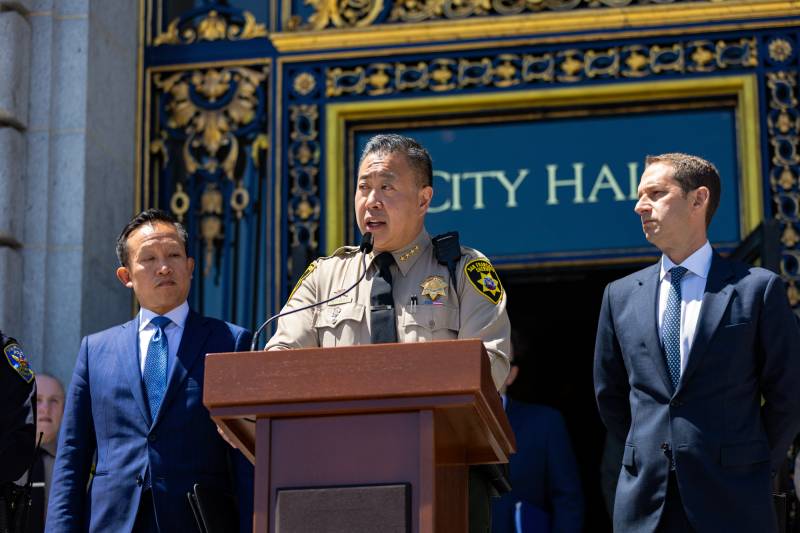The San Francisco Sheriff’s Office will resume warrantless searches and GPS monitoring of criminal defendants in its pretrial release program “as soon as possible,” officials announced Monday after an appellate court overturned a block on the controversial practice.
A panel of three U.S. 9th Circuit Court of Appeals judges ruled 2–1 last week to reverse a preliminary injunction ordering the sheriff to stop conducting the warrantless searches and sharing defendants’ GPS information with other law enforcement agencies. The program was suspended for new enrollees in October, a week after a federal judge found that the sheriff’s office had been routinely violating that order.
After the GPS monitoring program was suspended, advocates and authorities prepared for an increase in the jail population due to fewer people being released pretrial.
“We can now reopen this program and move forward,” Sheriff Paul Miyamoto said during a press conference on Monday. “We’re currently in the planning process, conferring with Superior Court first and making sure our next steps are consistent with the opinion. Our priority is to roll out new enrollments in a thoughtful and deliberate way.”



